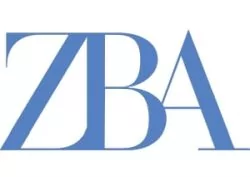Background:
On 6 April 2022, the Central Board of Direct Taxes has changed the Income-tax Rules, 1962, as amended (IT Rules) to enable infrastructure debt funds as companies (“IDFs”) to issue zero-coupon bonds (“ZCBs”). This provides IDFs more flexibility in procuring funds from domestic institutional investors encouraging increased investment in Indian infrastructure.
A ZCB is bond which is issued by an IDF specifically notified by the Central Government in the Official Gazette. ZCBs have no interest component and issued at deep discount and no benefit is payable or received before maturity and they are redeemed at face value on the maturity date. Once notified, the income on the ZCB does not fall within the calculation of total income of a person, and is therefore exempt from all tax under Section 10(47) of the Income Tax Act 1961. However, the IDFs that are eligible to issue ZCB are only those set up as companies and registered as NBFCs under the RBI regulations and not SEBI regulated IDFs which are set up as trusts.
For any foreign portfolio investor (“FPI”) investing, as they are non-residents, the original or initial maturity of ZCBs, at time of first investment by such FPI, shall not be less than a period of 5 years.
Applicable Criteria: The Finance Ministry in Union Budget 2021-22 modified the definition of ‘zero coupon bond', to enable notified IDFs to issue ZCBs. However, the amendment to include “infrastructure debt funds” as an eligible ZCB issuing entity was only effective from 1st April, 2022. Rules in respect of this were notified under notification number G.S.R. 275(E) dated 6 April 2022.
The following criteria apply:
- The ZCB must have an investment grade rating from at least 2 credit rating agencies and be held for 10 years minimum and 20 years maximum from the issuance date;
- IDF has to apply and obtain permission to issue ZCB from at least 3 months before ZCB issuance date;
- The IDF must undertake that the proceeds of issuance: (i) be at least 25% invested before the end of the financial year immediately following the financial year in which the ZCB is issued; and (ii) the remainder within 4 financial years immediately from the financial year in which the ZCB is issued; and
- Maintain a sinking fund for interest accrued on all ZCBs, which is invested in GSECs and Government securities.
Conclusion
The effectiveness of the changes made in the IT Rules will enable IDFs to have a wider range of capital raising products in their tool kit and utilise funds to refinance existing debt and free up capital for banks to lend to new infrastructure projects. This is a welcome move. However, there needs to be further changes to also give IDFs established as trusts to have the same benefits. In addition, this change will encourage foreign pension funds and sovereign wealth funds to invest in these long dated instrument though the FPI route.
The above is a generic analysis and should not be regarded as a substitute for specific advice based on the facts of a client's objectives and specific commercial agreements reached. Please do reach out to us at mail@zba.co.in for any queries.

